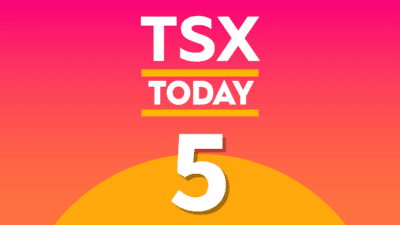It’s looking like the Bank of Canada is going to raise interest rates. Rumours are swirling that the bank will raise its policy rate from 0.25% to 0.5% early in 2022. That hasn’t been confirmed by any official statements yet, but governor Tiff Macklem strongly hinted at it. In a recent statement, he said that
- Interest rates would remain high for the remainder of 2021; and
- He would not allow interest rates to remain this high for long.
There is only one way to interpret these two statements side by side:
The bank will be raising interest rates sometime after 2021. Rate hikes are the means by which central banks keep inflation in check. By raising the cost of borrowing, high interest rates discourage spending and encourage saving. The result — unless there’s something happening on the supply side — is lower inflation.
If Macklem is serious about this, then we could see an interest rate hike as soon as next year. That’s going to have an effect on homeowners. Canadians have the highest levels of mortgage debt in history, and if rates rise, then that debt will become more expensive to service.
In this article, I will explore the effects of higher interest rates on homeowners. I’ll start by dispelling one of the most common myths about mortgages: that fixed-rate mortgages keep you safe from interest rate hikes.
Fixed-rate mortgages don’t spare you the effects of higher rates
The first thing you need to know about interest rate hikes is that fixed-rate mortgages don’t spare you from their effects. You might have heard about the differences between fixed- and floating-rate mortgages, and how the interest rate on the former doesn’t change. It’s true that fixed-rate mortgages don’t have constantly fluctuating interest payments like floaters do. But there is one date when their interest rates can go up: the renewal date.
In Canada, mortgages typically consist of a number of terms, each one being about five years. It generally takes several terms to pay off a mortgage. When you go to renew a fixed-rate mortgage, the bank can hike your interest rate. You might think you can avoid the hit by paying off your mortgage aggressively, but beware prepayment penalties. The banks are way ahead of you, and they have fees with which they can punish you for paying off your loan too early.
How banks respond to higher rates
Bank interest rates generally respond to the Bank of Canada’s policy rate. This is the rate at which banks can borrow from the bank of Canada. The higher the policy rate, the higher the rates banks will have to charge to make a profit. Yield curves also influence bank interest rates, because they influence how much yield investors expect on loans.
Let’s take a bank like Toronto–Dominion Bank (TSX:TD)(NYSE:TD) as an example. TD Bank originates a lot of loans in Canada. Right now, TD charges about 2.5% on a fixed mortgage with a five-year term. That’s a historically low interest rate. And it has been made possible in no small part thanks to the Bank of Canada’s low policy rate. Thanks to the current 0.25% policy rate, TD Bank can borrow cheaply to meet its reserve requirements. If the Bank of Canada raises the interest rate to 0.5%, then meeting these requirements will become more expensive. It will very likely raise its own mortgage rates to customers in order to fatten its profit margins, which will have been dented by the higher central bank rate.
Foolish takeaway
2021 has so far been a great year to buy a home in Canada. With rock-bottom interest rates and rising prices, it’s been a real party. But it’s beginning to look like the party will be over soon. With interest rates set to rise, the cheap borrowing could soon end. That could also have an effect on prices eventually.







